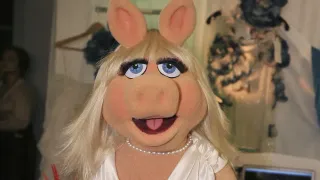
4 hours ago
Paradise, Disrupted: “I Really Love My Husband” Queers the Honeymoon Comedy
READ TIME: 4 MIN.
There’s nothing like a tropical honeymoon to test the vows of “I do”—especially when paradise comes with a plot twist. Enter “I Really Love My Husband,” the deliciously offbeat new dramedy that’s rewriting the rules of modern love, one awkward encounter at a time. Directed by GG Hawkins and starring Madison Lanesey, Travis Quentin Young, and Arta Gee, the film lands us in Bocas del Toro, Panama—a lush, sun-drenched setting that proves as volatile as the hearts tangled inside it .
Teresa and Drew are one year into their marriage, finally embarking on the honeymoon that life kept postponing. From the moment they step off the plane, it’s clear this couple is more “work in progress” than “eternally blissed.” Teresa, performed with irresistible bravado by Madison Lanesey, barrels through the world with a selfie stick and a need to narrate her own love story—sometimes a little too loudly. Drew (Travis Quentin Young) is the gentle counterpoint, so mild-mannered he almost disappears into the Panamanian scenery. Their chemistry is less “opposites attract” and more “opposites endure,” with love that feels both fiercely professed and quietly doubted .
But everything changes when Paz (Arta Gee), a nonbinary expat managing the couple’s rental, enters the frame. Paz is radiant, at ease, and so utterly themselves that even the most buttoned-up guests can’t help but lean in. Teresa, ever the seeker, is instantly captivated—leading to a proposition that’s as daring as it is unfiltered: what if they seduced Paz, together, on their honeymoon ?
“I Really Love My Husband” is more than a comedy of errors; it’s an exploration of sexuality, authenticity, and the beautiful chaos that comes with questioning everything you thought you wanted. The film’s portrayal of Paz is especially noteworthy. In a cinematic landscape that still too often sidelines nonbinary characters, Paz is neither a punchline nor a lesson—they’re a catalyst, a mirror, and a reminder that queer desire has never been a single story .
In one standout moment, Teresa, floundering in her own self-doubt, asks, “What is wrong with me?” only to have Paz reply, “I do feel seen by you—and I see you seeing me. You two need to figure this out.” The line is both a gut punch and a gift, calling out the characters’ (and, perhaps, the audience’s) need to do the messy work of self-examination before reaching for something—or someone—new .
Critics have called the film “refreshingly fluid” and “surprisingly profound” . That praise rings true: Hawkins’ script doesn’t settle for tired tropes about “saving” a marriage. Instead, it leans into the complexity of queer relationships and the realities of loving outside the lines. The sexual tension is real, but so are the emotional stakes. Teresa’s proposition isn’t just a bid for excitement—it’s a cry for clarity, connection, and the kind of intimacy that can only come from facing your own contradictions.
For LGBTQ+ viewers, there’s a special resonance in watching characters negotiate boundaries, experiment with desire, and—crucially—talk about it. In a world still quick to judge, the film’s openness feels radical. Here, queerness is not a crisis but a current, running through every conversation, every longing glance, every awkward, hilarious, mortifying attempt to get it right.
Paz’s presence in the story is a quiet revolution. They are unapologetically nonbinary, moving through the world with a self-possession that both unsettles and inspires Teresa and Drew. The film never reduces Paz to a plot device; instead, they become a prism through which the couple must confront their own blind spots and unmet needs. For nonbinary and genderqueer viewers, Paz’s character offers something still too rare on screen: a reflection that is whole, complicated, and deeply human.
The casting of Arta Gee in the role, and the decision to center a nonbinary character not as an “other” but as a locus of possibility, signals a growing shift in queer cinema. “I Really Love My Husband” doesn’t just check a box for representation—it lets queer and trans joy, mess, and complexity take center stage .
Make no mistake: this film is funny. From Teresa’s relentless Instagramming (“She spends so much time stating how much she loves her husband that you sense she’s trying to convince herself that she does,” as one reviewer put it ) to the couple’s misadventures in self-care and self-sabotage, “I Really Love My Husband” is a comedy that isn’t afraid to get uncomfortable. But at its heart, it’s a film about people desperate to be seen—and maybe, just maybe, to see themselves in a new light.
The story refuses easy answers. Will Teresa and Drew find their way back to each other? Will Paz become a fleeting adventure or a lasting influence? The film lets these questions hang, trusting the audience to find meaning in the uncertainty—a move that will feel familiar to anyone whose own love life has defied the script.
As queer cinema continues its renaissance, “I Really Love My Husband” stands out for its willingness to be messy, honest, and gloriously queer. It lands in a cultural moment hungry for representation that isn’t sanitized or tragic, but full of the awkward, exhilarating, sometimes painful truth of trying to love well.
For LGBTQ+ viewers, the film’s message is clear: paradise is overrated, but authenticity—no matter how chaotic—is the real adventure. Whether you’re newly married, newly out, or just newly curious, this is one honeymoon worth crashing.
In theaters now.
Pack your bags—and leave your expectations at home.






